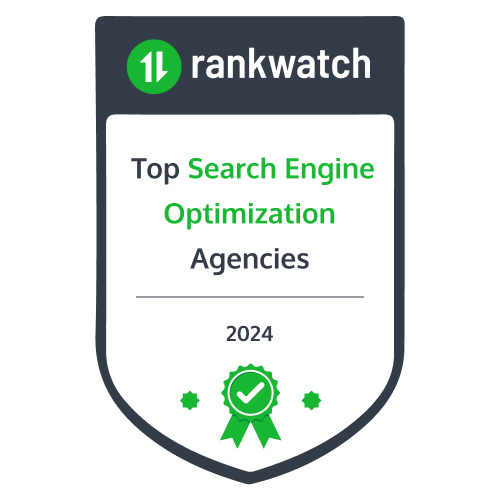In today’s e-business environment, companies continuously focus on opportunities to increase player presence, customer interest, and sales results. An important method of addressing these goals would be the utilization of Search Engine Optimization (SEO).
SEO has grown and developed since the introduction of AI and the basics of machine learning, providing improved, optimized SEO solutions. In this article, the author unpacks how AI-based SEO leads to e-commerce sales and further analyzes the theoretical foundations of machine learning driving these innovations.
Understanding AI-Driven SEO
Machine-learning applications in SEO use data analysis to determine patterns and make predictions that improve the website’s ranking on search engines. Past SEO relied heavily on software, and manual keyword mapping and optimization strategies were conventional.
On the other hand, the AI for SEO works with sophisticated techniques to improve these processes and make them faster.
AI-Driven SEO Strategies for E-commerce
1. Personalized User Experience
Another advantage of AI in optimizing SEO is that the information delivery to the consumers can be customized based on the client’s needs and usage patterns. Through statistics of earlier communiqué, systems can generate recommendations about the merchandise that the user may be inclined to purchase. This further supports the usability and provides a higher probability of the conversion rate.
2. Dynamic Content Optimization
Traditional SEO requires optimization of the web page contents through the use of keyword input and meta tags, which are ordinarily placed on web pages. AI-SEO, on the other hand, includes natural language processing and machine learning to identify what is most effective in a particular situation organically.
This is made possible through understanding the significance and encyclopedia of a search so that AI can recommend the most accurate keyword, phrase, and content structure to input to get the best rank.
3. Voice Search Optimization
But the most important driving force for voice search is somewhat obvious: more and more people are starting to use voice-activated assistants like Siri, Alexa, Google Assistant, and others. Machine learning-based SEO techniques can easily identify the voice pattern.
They can align the SEO efforts per the pattern of voice search queries, which is quite conversational. This involves the usage of long-tail keywords and how content is written and arranged to respond to certain questions.
4. Automated A/B Testing
In machine learning, it is possible to recognize and distinguish which of the proposed SEO approaches – different title tags, meta descriptions, or layouts – is the most effective without conducting A/B tests.
It means that through constant experimenting and evaluation of outcomes, AI can define the best strategies to increase the chances of getting better ranking in search engine results and attract more visitors, thus increasing web store sales.
5. Advanced Analytics and Reporting
Some benefits of having Artificial Intelligence powered SEO tools are that they afford better performance reporting and analysis of website data, users’ behavior, and SEO results. They are versatile in the statistics they can gather, including click-through, bounce, and conversion rates. This means the e-commerce business can improve its SEO based on fresh data collected.
Fundamentals of Machine Learning in SEO
Artificial Intelligence is a broad category, including machine learning, which is feeding large data sets into algorithms and then using them to make decisions with little or no human input. In the context of SEO, a machine learning algorithm can analyze huge quantities of data from search engines, users, or any performance indicators of the websites.
1. Data Collection and Preprocessing
Collecting and pre-processing data from multiple sources, including, but not limited to, keywords, users’ activities, and website traffic.
2. Feature Engineering
Filtering and converting the right variable (features), which determines the ranks of search engines and users.
3. Model Training and Evaluation
They are using past data to calibrate machine learning algorithms and using the results to forecast future occurrences and outcomes. If the models are inaccurate or do not perform adequately, they are revised.
4. Continuous Learning
This makes machine learning models easy to update, and it continues to learn from new data, keeping SEO strategies current.
Case Studies: AI-Driven SEO Success
Various e-business ventures have benefited from AI-supported SEO to increase commercial capabilities and website popularity. For example:
1. Amazon
AI and machine learning are also extensively applied by Amazon to improve the search relevancy of its algorithms and personalize its product suggestions. Based on massive amounts of user interactions and search query data, the key concepts of AI SEO are applied to rank and recommend products that, in turn, help Amazon boost its sales and customer satisfaction.
For instance, Amazon reported a 35% increase in sales attributed to its personalized recommendation engine, showcasing the powerful impact of AI on SEO and e-commerce performance.
2. Alibaba
One of the strategies used by Alibaba to boost its SEO rank in the international markets is artificial intelligence. With the help of machine learning models, it is possible to predict the trends of global search and users’ behavior; thus, adjusting the content and product offerings of Alibaba according to regions and languages will substantially increase its e-commerce revenues globally.
This strategic application of AI has led to a measurable increase in Alibaba’s e-commerce revenue, with the company reporting a 20% rise in cross-border e-commerce transactions within a year of implementing these AI-driven tactics.
Benefits of Using AI for E-commerce SEO
Integrating AI into e-commerce SEO strategies offers transformative advantages, enhancing how businesses optimize their online presence. This results in more efficient resource allocation and significantly improved SEO outcomes, ultimately driving increased traffic and conversions for e-commerce businesses.
Better Efficiency in Keyword Research and Optimization
AI enhances keyword research and optimization by automating the analysis of large data sets, identifying trending keywords, and understanding user intent more accurately. This technology allows for more strategic keyword placements and optimizations, leading to increased visibility and traffic.
Improved Content Optimization for Search Engines
AI tools can analyze existing content on a granular level, suggesting improvements such as keyword inclusion, semantic keyword expansions, and content structure optimizations that align better with search engine algorithms. This leads to higher rankings and visibility.
Increased Engagement and Improved User Experience
AI-driven insights can help tailor content to meet the preferences and behaviors of specific audiences, resulting in more personalized and engaging user experiences. This customization improves site dwell times, reduces bounce rates, and enhances overall satisfaction, which positively impacts SEO rankings.
Improved Data Analysis for Smarter SEO Decisions
AI excels in processing vast amounts of SEO data—like traffic patterns, engagement metrics, and conversion rates—quickly and efficiently. This capability enables businesses to make informed decisions, forecast trends, and refine their SEO strategies dynamically based on real-time insights, leading to smarter, data-driven decisions that boost SEO performance.
Best AI and SEO Tools for E-Commerce Success
E-commerce success is increasingly driven by the strategic use of AI and SEO tools that enhance content visibility and user engagement. Here’s a detailed look at some of the top tools in the market:
Google Bard – Large Language Model (Free)
Google Bard leverages advanced AI to generate, enhance, and refine content. As a large language model, it can assist in creating drafts, suggesting content improvements, and even answering complex queries that can be incorporated into your content for SEO purposes.
To use Google Bard effectively, input your content briefs or specific questions and use the responses to enrich your website’s FAQs, blogs, or product descriptions. This can greatly enhance the relevancy and depth of your content, improving its search engine rankings.
Surfer SEO – Content Optimization
Surfer SEO is a tool designed to analyze and compare your content against the top-performing pages in search results. To use Surfer SEO, start by inputting your target keyword.
The tool will then provide a detailed analysis, including recommendations on keyword density, prominent words used by competitors, structure, and backlinks. Implement these suggestions to ensure your content is as optimized as possible, enhancing its visibility and ranking.
Frase Content Creation
Frase helps streamline the content creation process by using AI to research and write high-quality content that is optimized for SEO. Begin by entering a topic or keyword into Frase.
The tool will generate a content brief that includes questions your target audience is asking, headings, and sources you can use to write your answer. Use this as a framework to create detailed articles or product descriptions that meet SEO best practices.
Alli AI – Content Analysis
Alli AI focuses on optimizing your website’s SEO in a holistic way. It provides insights into your site’s structure, content, and backlinks.
To use Alli AI, enter your website’s URL, and it will scan your entire site, suggesting actionable steps to improve SEO such as optimizing meta tags, increasing content quality, and building backlinks. Follow the step-by-step guide provided by Alli to execute these strategies effectively.
Pro Rank Tracker
Pro Rank Tracker offers robust tracking of your keyword rankings across different search engines and geographic locations. To get started, input your keywords into the tool, and it will track their performance over time, providing you with updates and trend data.
Use this information to tweak your SEO strategy, focusing on what brings the best results and adapting to changes in search engine algorithms.
Future Trends in AI-Driven SEO
SEO in the future will be promising and grow more with the enhanced usage of AI and machine learning technologies. Emerging trends include:
1. Predictive Analytics
Harnessing the power of AI to identify the future trends of internet search and consumer trends, thus helping e-commerce businesses adapt SEO approaches ahead of time.
2. Real-Time SEO Adjustments
It uses machine learning techniques to develop models that adapt the SEO while it’s in process due to live and user data.
3. Enhanced User Intent Analysis
Applying AI to understand users’ intent behind keyword entries better leads to more precise content tuning.
Conclusion
AI-powered SEO can be considered a breakthrough solution within the e-commerce development framework as long as it provides high accuracy and faster results in analyzing the website’s performance and sales enhancement.
Therefore, using the basic concepts of machine learning, e-commerce firms can boost their competitive advantage and continuously enhance their clients’ experience by leveraging the power of AI. However, as technological advancement continues, AI in SEO companies will surely become a standard for supporting e-commerce businesses.
Frequently Asked Questions
Can AI-powered data analysis improve the overall effectiveness of e-commerce store SEO?
Yes, AI-powered data analysis can significantly improve the overall effectiveness of e-commerce store SEO. AI excels at processing large volumes of data quickly and identifying patterns that may not be immediately apparent to human analysts.
Can AI-powered tools completely replace human input in SEO optimization?
No, AI-powered tools cannot completely replace human input in SEO optimization. While AI can greatly enhance efficiency and accuracy in data analysis, content generation, and routine tasks, the human element is crucial for strategy formulation, creative content creation, and ethical decision-making.
Are there any ethical concerns surrounding the use of AI in e-commerce store SEO?
Yes, there are several ethical concerns surrounding the use of AI in e-commerce store SEO. One major issue is data privacy, as AI systems often require large amounts of consumer data to train and operate effectively.




